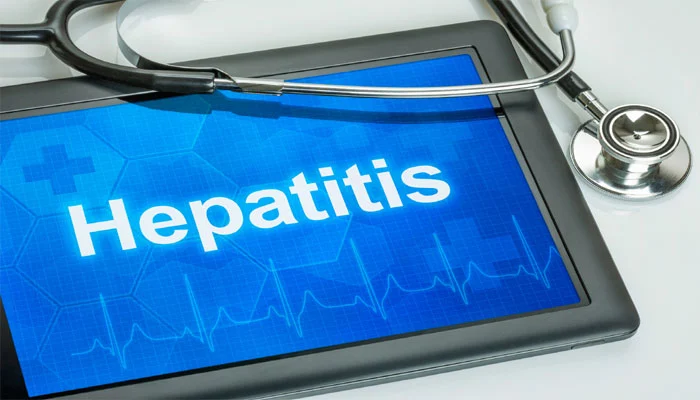Hepatitis remains one of Nigeria’s most urgent yet underreported public health crises. An estimated 18.2 million Nigerians live with Hepatitis B virus, and another 2.5 million infected with hepatitis C, a staggering total of over 20 million people.
With its adult prevalence rates at 8.1% for HBV and 1.1% for HCV among those aged 15–64, the country ranks among the top 10 burdened countries globally.
Even more alarming is the fact that over 80% of infected individuals are unaware of their status, and more than 90% of those with the virus in Africa lack much-needed care. This fuels ongoing transmission and leads to late-stage complications such as liver cirrhosis and cancer.
On July 28, World Hepatitis Day 2025, Nigeria launched Project 365, a landmark nationwide campaign aiming to eliminate hepatitis by 2030.
Coordinating Minister Prof. Muhammad Pate emphasised the urgency, citing annual economic losses between ₦13.3 trillion and ₦17.9 trillion and 4,252 deaths from untreated liver cancer each year, many of which are linked to untreated chronic hepatitis.
A silent epidemic
Hepatitis in Nigeria is often masked by common ailments; symptoms like fatigue, mild fever, and malaise are frequently misdiagnosed as malaria, delaying correct diagnosis until irreversible damage has occurred.
The prevalence rate of 8.1% equates to more than 20 million Nigerians at risk of cirrhosis, liver cancer, or premature death if left untreated.
The socio-economic toll is severe: lost productivity, high healthcare costs, and diminished household capacity contribute to staggering yearly losses nearing ₦18 trillion.
Prevention is doable: the hepatitis B vaccine is 98–100% effective, and early screening can block transmission and curb progression. World Health Organisation-supported national policies recommend universal birth-dose vaccination, routine adult screening, and safe injection practices.
Project 365
Under a new initiative called Project 365, Nigeria will conduct daily mass screening, vaccination, and curative treatment across all 360 federal constituencies. The programme is supported by WHO, Africa CDC and pharmaceutical partners like Abbott, including the National Assembly.
A newly created Viral Elimination Fund (VEL) will subsidise diagnostics and treatment, while regulatory reforms and tax incentives aim to stimulate local production of test kits and hepatitis medicines.
Crucially, the initiative integrates screening and care within custodial centres, addressing high-risk populations: over 830 inmates at Kuje Custodial Centre have already received testing since December 2024.
Treatment protocols under Project 365 prioritise curative antiviral therapy for hepatitis C and lifelong management of hepatitis B, including vaccination for those found negative.
Nigeria is working to integrate hepatitis B treatment into the national health insurance package via the basic healthcare provision fund.
Aligned with SDG 3 and the WHO’s Global Health Sector Strategy, Project 365 marks a turning point in Nigeria’s public health policy.
One transformative reform sees the merging of the World Hepatitis Fund into the Basic Healthcare Provision Fund, under a unified Sector‑Wide Approach (SWAp), ensuring sustainable financing and scalability.
Yet obstacles remain. Public awareness remains low, which means that a majority of Nigerians are unaware of their status. Addressing misinformation and cultural reluctance through community campaigns will help in this regard.
If Project 365 succeeds, Nigeria could become the first African country to eliminate viral hepatitis as a public health threat by 2030, restoring health and productivity to millions.
It would set a precedent for integrated, inclusive, and locally anchored health responses.
Hepatitis is a significant but underreported public health crisis in Nigeria, affecting over 20 million people, with a prevalence of 8.1% for Hepatitis B and 1.1% for Hepatitis C among those aged 15–64. The disease often goes undiagnosed due to its common symptoms like fatigue and fever being mistaken for malaria. This lack of awareness and treatment leads to severe complications and staggering annual economic losses up to ₦17.9 trillion, alongside 4,252 related deaths annually.
To combat this, Nigeria launched Project 365 on World Hepatitis Day 2025, aiming for disease elimination by 2030. Supported by WHO, Africa CDC, and pharmaceutical partners, the initiative includes daily mass screening, vaccination, and treatment in all 360 federal constituencies. The Viral Elimination Fund will subsidize costs, stimulate local production of medical supplies, and prioritize treatment for high-risk populations, including prison inmates.
Project 365 aligns with global health strategies and aims to integrate hepatitis treatment into Nigeria’s health insurance package. However, public awareness is crucial, as many remain unaware of their status. By overcoming misinformation and cultural reluctance through community campaigns, Nigeria could become the first African nation to eliminate hepatitis as a public health threat, enhancing health and productivity nationwide.






